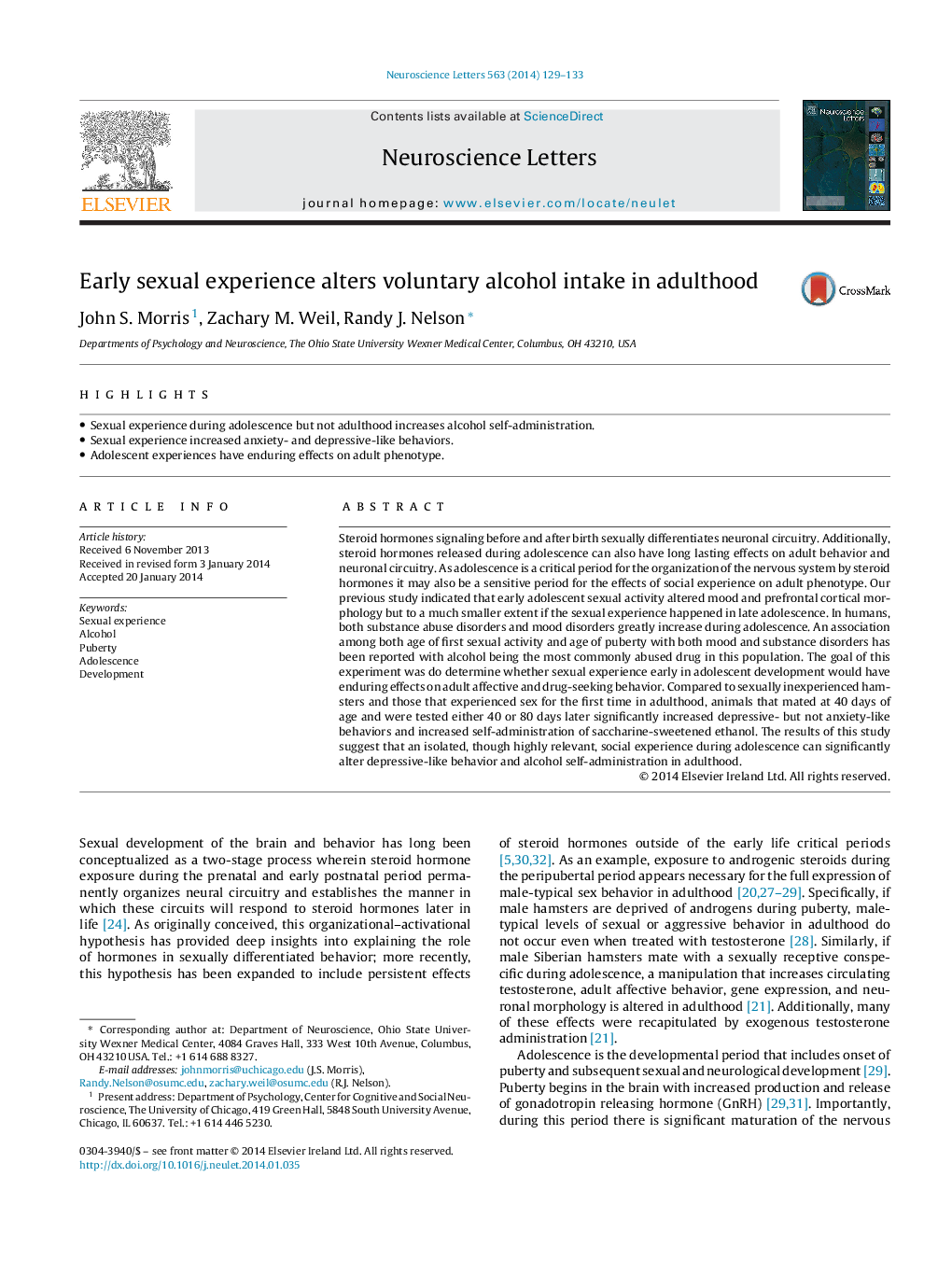| Article ID | Journal | Published Year | Pages | File Type |
|---|---|---|---|---|
| 4343799 | Neuroscience Letters | 2014 | 5 Pages |
•Sexual experience during adolescence but not adulthood increases alcohol self-administration.•Sexual experience increased anxiety- and depressive-like behaviors.•Adolescent experiences have enduring effects on adult phenotype.
Steroid hormones signaling before and after birth sexually differentiates neuronal circuitry. Additionally, steroid hormones released during adolescence can also have long lasting effects on adult behavior and neuronal circuitry. As adolescence is a critical period for the organization of the nervous system by steroid hormones it may also be a sensitive period for the effects of social experience on adult phenotype. Our previous study indicated that early adolescent sexual activity altered mood and prefrontal cortical morphology but to a much smaller extent if the sexual experience happened in late adolescence. In humans, both substance abuse disorders and mood disorders greatly increase during adolescence. An association among both age of first sexual activity and age of puberty with both mood and substance disorders has been reported with alcohol being the most commonly abused drug in this population. The goal of this experiment was do determine whether sexual experience early in adolescent development would have enduring effects on adult affective and drug-seeking behavior. Compared to sexually inexperienced hamsters and those that experienced sex for the first time in adulthood, animals that mated at 40 days of age and were tested either 40 or 80 days later significantly increased depressive- but not anxiety-like behaviors and increased self-administration of saccharine-sweetened ethanol. The results of this study suggest that an isolated, though highly relevant, social experience during adolescence can significantly alter depressive-like behavior and alcohol self-administration in adulthood.
